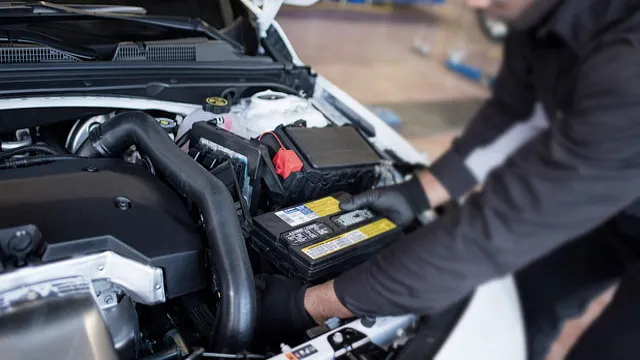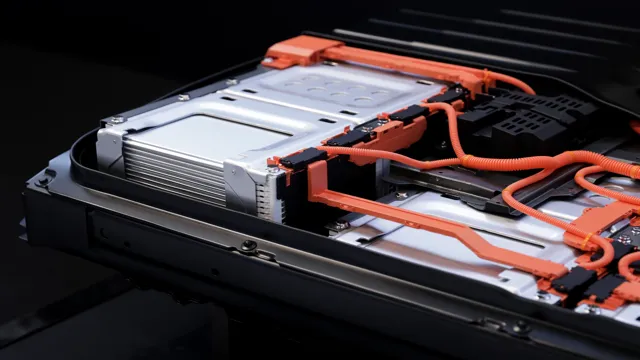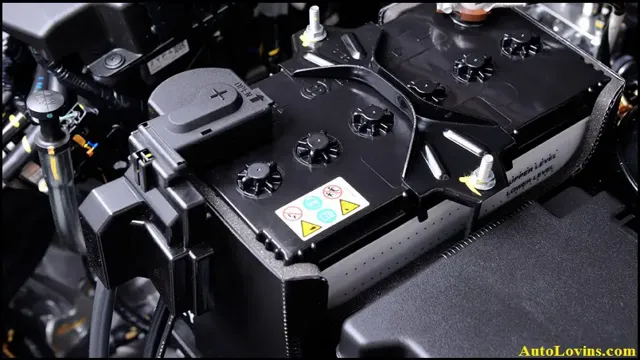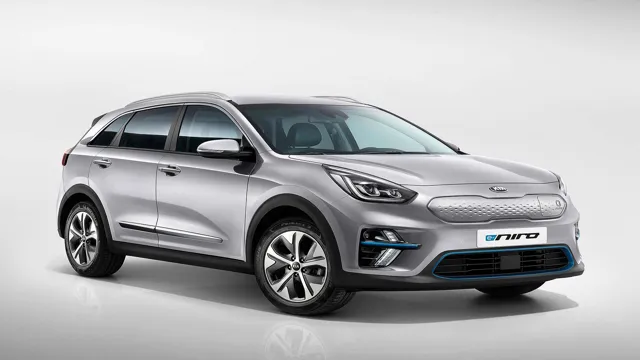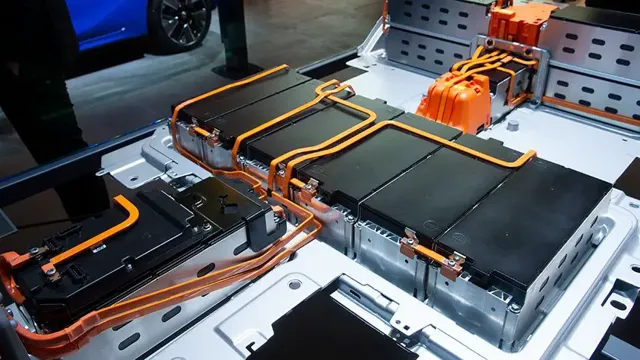Do Electric Car Batteries Really Need Replacement? Answering the Burning Question
Electric car batteries are some of the most important components of a vehicle’s powertrain. They power the motor and provide energy to operate the various electronic systems inside the car. So, what happens when the battery runs out of juice? Is it possible to replace it, or are electric car batteries just a one-and-done situation? The answer to the question of whether electric car battery replacement is fact or fiction isn’t a straightforward one.
It depends on a few factors, including the age of the vehicle, the cost of the battery, and the availability of replacement parts. Some automakers offer replacement programs for their electric car batteries, but the process can be expensive and time-consuming. Despite the challenges associated with electric car battery replacement, advancements in technology and efforts to reduce costs are making it a more viable option for consumers.
As more people make the switch to electric vehicles, the need for replacement batteries will only increase. In this blog post, we’ll explore the current state of electric car battery replacement and answer some of the most pressing questions about this topic. We’ll also take a look at some of the challenges associated with battery replacement and what the future may hold for this important aspect of EV ownership.
So, buckle up and get ready to learn everything you need to know about electric car battery replacement!
The Longevity of Electric Car Batteries
If you’re wondering whether you need to replace electric car batteries, the good news is that they tend to last a long time. Most electric car batteries are designed to last around 8-10 years before they need to be replaced, although some can last even longer. Batteries degrade gradually over time, losing some of their capacity as they age, but they don’t just stop working all of a sudden.
This means that you’ll typically have plenty of warning before you need to replace your electric car batteries. Additionally, many electric car manufacturers offer warranties on their batteries that range from 8 to 10 years or longer, so you may not even need to pay for a replacement if the battery fails during that time. With proper maintenance and care, electric car batteries can provide dependable power for many years to come.
So if you’re considering buying an electric car, don’t let concerns about battery life hold you back!
How long do they last?
One common question that arises when considering the purchase of an electric car is how long the battery will last. The longevity of electric car batteries can vary based on a number of factors, such as the make and model of the vehicle, the driving habits of the owner, and the type of battery used. Generally, electric car batteries have a lifespan of around 8-10 years, or about 100,000 miles.
However, some newer models of electric cars are promising even longer battery life, with some boasting a lifespan of up to 15 years or more. It’s important to note that while the battery may lose some of its capacity over time, it will still typically continue to function for many years after it first begins to degrade. So while the longevity of electric car batteries may not be infinite, it is certainly long enough to make them a worthwhile investment for many years to come.
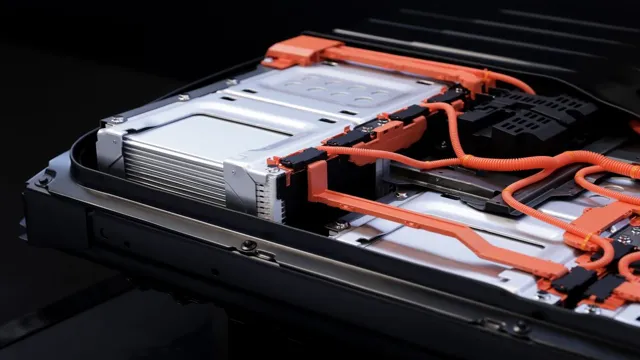
Factors that affect battery life
Electric car batteries are an incredible technological achievement, but they do have their limitations when it comes to longevity. Several factors affect the lifespan of an electric car battery, including how often it’s charged, the quality of the battery, and how well it’s maintained. The main keyword here is “longevity,” and it’s crucial to note that electric car batteries can last a long time when properly cared for.
Owners can maximize battery life by charging it regularly but not overcharging, keeping it cool, avoiding extreme temperatures, and storing it in a dry place when not in use. Furthermore, choosing a high-quality battery with a solid warranty and monitoring it regularly for signs of damage can also help ensure a long and healthy battery life. Finally, understanding how your driving habits impact the battery’s lifespan can help you adjust accordingly and get the most out of your electric vehicle.
Despite the many factors that affect electric car battery life, those who take proper care of their batteries should expect many years of efficient driving.
When Might a Battery Need Replacing?
Many electric car owners might wonder if they have to replace their car’s batteries at some point. The answer is that it depends on a few factors, such as the type of battery, how often the car is used, and how it is charged. Generally, electric car batteries can last anywhere from 5 to 20 years, depending on their quality and usage.
However, there are some signs that might indicate that it’s time to replace the battery. For instance, if the car’s range starts to decrease significantly, the battery’s capacity might be wearing out. Additionally, if you notice that the car’s charging time has increased, it might also be a sign that the battery is losing its effectiveness.
In the end, it’s important to remember that electric car batteries are like any other car part – they have a lifespan, and eventually, they will need to be replaced.
Symptoms of a battery issue
As a battery ages, its capacity to store electrical energy gradually diminishes. Over time, this can result in symptoms of battery issues. The most common sign is when your device or vehicle fails to start up or experiences slow cranking or sluggishness.
Another symptom to watch out for is an illuminated battery warning light on the dashboard. This is an indication that your battery is not charging properly, requiring immediate attention. Old or worn batteries also tend to leak or bulge, which can pose a risk of damage to internal components.
If you notice any of these symptoms, it may be time to consider replacing your battery. By doing so, you can enjoy reliable performance and avoid unexpected breakdowns. Remember to choose a high-quality replacement battery that matches your device or vehicle’s specifications and consult with a professional if you are unsure.
With the proper care, your device or vehicle will continue functioning optimally for years to come.
Typical lifespan of an EV battery
The typical lifespan of an EV battery is a commonly asked question for potential electric vehicle owners. On average, most EV batteries are designed to last between 8-10 years, or around 100,000-150,000 miles driven. However, this can vary based on a variety of factors, including the type of EV, usage habits, and climate conditions.
In some cases, a battery may need to be replaced sooner if it is heavily used or exposed to extreme temperatures. However, it’s important to note that with proper maintenance and care, many EV batteries can last well beyond their projected lifespan. This includes regularly charging the battery to between 20-80% and avoiding frequent fast charging.
Additionally, some EV manufacturers offer extended warranties or battery replacement programs to provide peace of mind to their customers. Overall, it’s important to consider the expected lifespan of an EV battery when purchasing an electric vehicle and to take steps to ensure its longevity.
Replacing an Electric Car Battery
Many people wonder if they need to replace the battery in their electric car. The answer is typically “yes”, but not for the reasons you might think. Electric car batteries are designed to last for a very long time, often up to 200,000 miles or more.
However, as with any battery, their performance will degrade over time and eventually need to be replaced. Depending on the make and model of your car, the cost of replacing an electric car battery can be quite expensive, sometimes costing several thousand dollars. But don’t let this scare you away from buying an electric car – the initial purchase price is often offset by the long-term savings on fuel costs and maintenance.
Plus, as electric cars become more popular, the cost of replacement batteries is expected to come down over time. If you’re in the market for a new car, consider going electric and enjoy the benefits of a cleaner, more efficient mode of transportation.
Costs associated with a battery replacement
Replacing an electric car battery can be a significant expense, but it also depends on the make and model of the vehicle. Typically, an electric car battery can last anywhere from 8 to 10 years, or 100,000 to 200,000 miles. Once the battery reaches the end of its lifespan, you have two main options: replace it or sell the car.
If you decide to replace the battery, the cost can range anywhere from $3,000 to $7,000 or more. This cost varies depending on the size of the battery and the technology used. Some car manufacturers offer replacement batteries under warranty or at a discounted price, so it’s important to check with your dealership when the time comes.
Other factors that can affect the cost of a battery replacement include labor costs, transportation fees, and taxes. While the cost of replacing an electric car battery might seem daunting, it’s important to remember that electric vehicles are much cheaper to maintain and operate than their gas-guzzling counterparts. Plus, many owners find that the long-term savings in fuel costs and maintenance expenses more than make up for the initial investment.
Is it necessary to replace a battery?
Replacing an electric car battery may not always be necessary, but it depends on a variety of factors. One significant factor is the age of the battery and the number of charging cycles it has experienced. Batteries degrade over time, and when their capacity to hold a charge drops below a certain threshold, they may need to be replaced.
Another factor is the overall condition of the car and its drivetrain. If the car has been well-maintained and the battery has not suffered from extreme temperatures or damage, it may last much longer than a poorly-maintained car. Ultimately, it is essential to have the battery checked regularly by a qualified technician who can assess its health and advise on when it might need to be replaced for optimal performance.
Keeping an eye on your battery’s state of charge and charging it frequently can also help prolong its life. However, if you notice that your car’s range is decreasing significantly or that it won’t hold a charge for long, then it may be time to consider a battery replacement to ensure that you can continue to enjoy reliable performance from your electric car.
Maximizing the Life of Your EV Battery
If you’re considering buying an electric car, you might be wondering if you’ll have to replace the battery at some point. While it’s true that the batteries in EVs do degrade over time, there are things you can do to maximize their life. For example, avoiding extreme temperatures and keeping your battery charged between 20% and 80% can help prevent degradation.
Using regenerative braking can also help extend your battery’s life. It’s also a good idea to be mindful of your driving habits – aggressive driving and rapid acceleration can put extra strain on the battery. So while it’s possible that you may need to replace your EV’s battery at some point, taking good care of it can help you get the most out of it.
Tips for extending battery life
Maximizing the life of your EV battery is essential for getting the most out of your electric vehicle. One of the essential tips for extending battery life is to avoid frequent, fast charging. While fast charging may seem convenient, it can cause the battery to degrade faster, reducing its overall lifespan.
Instead, opt for slower charging more frequently to keep your battery in better condition. Additionally, keeping your battery at moderate temperatures is crucial. Extreme temperatures, both hot and cold, can also cause battery degradation, so try to park your vehicle in a covered area or a garage to protect it from the elements.
Finally, try to avoid using unnecessary features that drain your battery, such as the air conditioning or seat heaters, when they’re not needed. Implementing these tips in your daily routine can help maximize the life of your EV battery and help you get the most out of your electric vehicle.
Maintaining an EV battery
An electric vehicle (EV) battery is a crucial component that needs proper maintenance to ensure its longevity. Maximizing the life of an EV battery requires understanding how it functions, knowing its capacity, and practicing good charging habits. It is advisable to avoid charging the battery to full capacity frequently as it can reduce its lifespan.
Additionally, EV owners need to keep their battery temperature in check as high temperatures can cause damage to the battery. Routine maintenance checks are also essential to ensure the battery’s health, such as keeping the battery clean and dry and avoiding extreme temperatures. A well-maintained EV battery can last for several years, giving you optimal performance and extending its lifespan.
Conclusion
To replace or not to replace electric car batteries, that is the question. Well, the answer is a bit complicated. While electric car batteries do degrade over time and usage, they also have a much longer lifespan than traditional car batteries.
So, if you plan on keeping your electric car for a while, you may eventually need to replace the battery. But fear not, advancements in battery technology are constantly being made, and in the near future, we may have batteries that can last a lifetime. Until then, just keep on charging and enjoying the benefits of driving an electric car.
“
FAQs
How long do electric car batteries last before they need replacing?
The lifespan of an electric car battery can vary depending on factors such as usage, maintenance, and charging habits, but typically they can last anywhere from 8 to 10 years on average before needing to be replaced.
Will I have to replace the entire battery pack if one battery cell fails?
Not necessarily. Depending on the type of electric car and its battery pack design, it may be possible to replace only the faulty battery cell rather than replacing the entire pack. This can reduce the cost of repairs.
How much does it cost to replace an electric car battery?
The cost of replacing an electric car battery can vary widely depending on the make and model of the vehicle, as well as the size and type of battery pack. On average, replacement costs can range from $3,000 to $10,000 or more.
Can I sell my old electric car battery when I replace it?
In some cases, it may be possible to sell your old electric car battery for recycling or repurposing. However, it’s important to note that the value of a used battery can vary widely depending on its age, condition, and other factors. It’s best to consult with a professional before attempting to sell or dispose of an old electric car battery.
